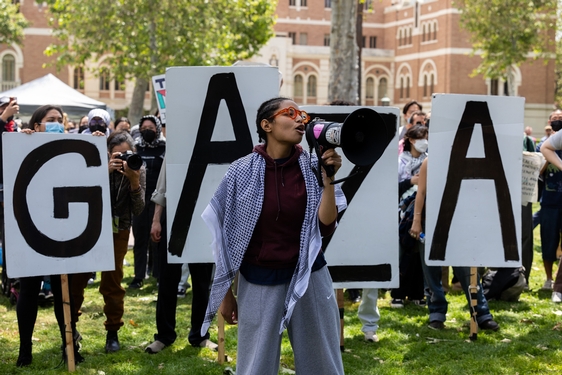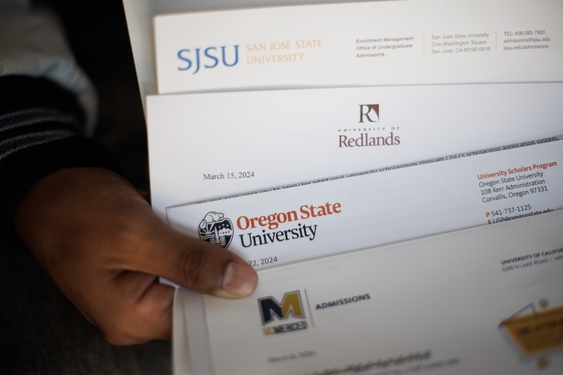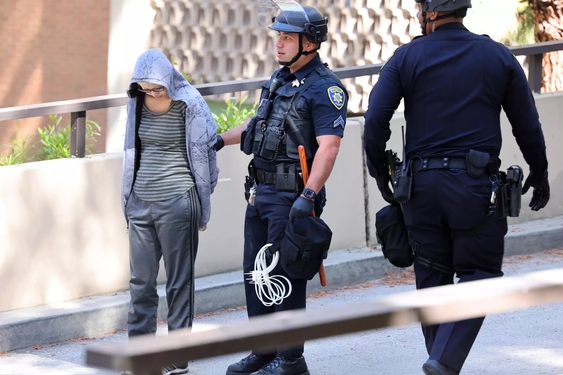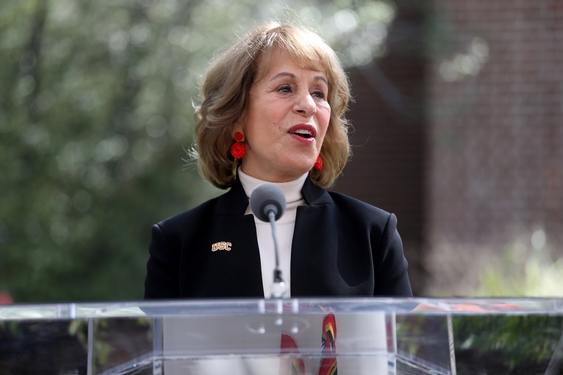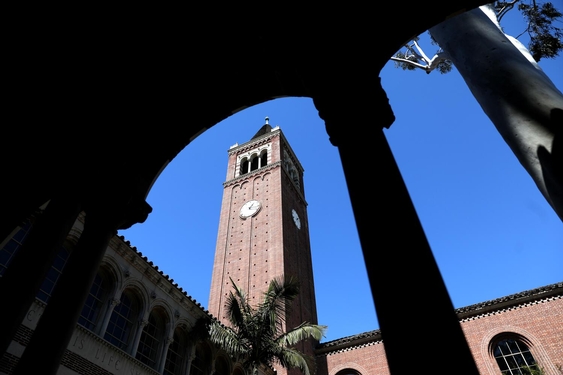Protesters arrested at University of Massachusetts Amherst following a Wednesday rally in support of Palestinians and opposed to continued war in Israel appeared in court Tuesday, along with advocates for their cause.
“My only regret is that there’s not more we can do,” said arrested UMass junior Hani Shaib.
Attorney Rachel Weber, who herself organized a Pro-Palestine protest in Northampton and has been representing all of the 57 individuals who pleaded not guilty, said it is “incredibly unlikely” that the protesters will go to jail as it is their first time being charged with the offense. Under Massachusetts law, the maximum penalty for trespassing could be punished by a fine of not more than one hundred dollars or by imprisonment for not more than thirty days or both.
Yet Weber, who was at the protests as a legal observer, said she was surprised to see that, as the building closed and protesters stayed, the protesters were arrested. She said the institution could have let them stay.
“The university had other choices to make, so it wasn’t an inevitability that they were going to be arrested,” Weber said. “These students are definitely aligned with a much larger movement that I strongly believe in and organize around through, in part through the [Jewish Voices for Peace.]”
“The arrests were based on the refusal by those arrested to comply with a lawful order by UMass Police to leave the building,” Ed Blaguszewski, a university spokesperson, said in a statement. One person arrested was a university employee, he said.
Weber said others are expected to help represent the 57 protesters but that because she was on the scene of the arrests and knew the arraignments would happen the next day, she volunteered to represent the protesters.
At a Tuesday arraignment of the final 10 protesters — who sat in the first row of the courtroom — Judge Bruce S. Melikian set a pre-trial date of December 14 and released the protesters without requiring they post bail. The arraignments of the other protesters began on Thursday.
Supporting the protesters were community members and professors from UMass and Hampshire college.
Omar Dahi, economics professor at Hampshire College, said he came to court because he knew students who had been arrested and wanted to show his support. He said he believes the university could have avoided the arrests by meeting with the students and talking through or better understanding where they are coming from.
“This is an exceptional situation. They’re not just doing this for no reason,” Dahi said. “I think colleges and universities should be fostering a space where the students can kind of express this — their activism, their political opinions and kind of engage with them in a different way than that.”
Dahi said universities should stick to their mission of fostering discussion and debates rather than silencing pro-Palestine voices on campus.
University of Massachusetts Amherst Afro-American studies professor Amilcar Shabazz, who also came to court, said he wishes the arrests could have been averted and questions whether the students have felt heard by the administration.
“We’ve been a campus where we’ve been able to have, I think, fairly strong, open, robust, civic discourse around these issues without it escalating any kind of violence or ill feelings,” Shabazz said.
Many of the protesters arrested are a part of two UMass groups which have banded together — UMass Dissenters and UMass Students for Justice in Palestine.
At the protest, the individuals vowed to not leave the building until the university met its demands: That the university cut any ties with companies that manufacture weapons, like Raytheon, and to “condemn the Israeli massacre of Palestinians and condemn the blockade on Gaza.”
They were part of a rally Wednesday afternoon in support of Palestinians that drew hundreds of people. Protesters then sat in the Whitmore Administration Building outside University Chancellor Javier Reyes’ office.
While the two student groups, some of whose members were at a press conference on Tuesday, said they met with Chancellor Reyes on Thursday, they said they were disappointed and felt belittled by the conversation.
“What he said at the meeting was pretty much a carbon copy of every other administrator,” said arrested UMass student Toby Paperno. “He said, I want to listen. I’m here to listen. But he refuses to actually take any action.”
Paperno said the student groups aren’t willing to meet with the chancellor until he does something publicly that shows he is open to meeting their demands, such as refusing to allow weapons manufacturers to recruit students for employment.
“We’re fighting for a UMass that stands for what it says it stands for. And we’re fighting for a UMass that puts people before profit,” Paperno said.
Paperno said UMass students will continue having protests and are hoping to expand their reach.
The last arrests happened around 2 a.m., the event’s student organizers and UMass said today. Blaguszewski said in an email that arrests happened “over the course of the evening after 6 p.m.”
The university released a statement Wednesday evening about the event and protesters’ demands. Paperno described the statement as filled with “empty words” and said the chancellor has the power to change the direction of the university toward a demilitarized future.
“UMass Amherst recognizes the right of students to demonstrate on university premises, which is consistent with the university’s commitment to free speech and the advocacy of opinions and ideas protected under the First Amendment,” the statement says. “The protestors’ specific demands do not align with the university’s publicly stated positions and policies.” It adds a link to an Oct. 10 letter about the war from Reyes to the community.
“The attack on Israel by Hamas,” he wrote, “with the kidnapping and murder of civilians — acts of terror which we vehemently condemn — and the escalation of the conflict to all-out war have led to untold suffering and tremendous loss of Israeli and Palestinian life.”
While Professor Shabazz said the university statements condemning the Hamas attack were valid, he said it is important to recognize the historical context in which it happened.
“If you’re not prepared to grapple with the context, the whole context, then it can lead to what the students have done,” Shabazz said, pointing to the students’ demands for the university to condemn the Israeli massacre of Palestinians and condemn the blockade on Gaza.
The protest was organized by a number of student groups, including UMass Dissenters, UMass Arab Cultural Association, UMass Black Student Union, UMass Center for Education Policy and Advocacy, UMass Prison Abolition Collective and UMass Students for Justice in Palestine.
“I just think it’s really important to note that this doesn’t die when we leave, and that we will continue being as active as we can in political spheres,” said arrested UMass student Jamie Long. “And we will continue to foster a new generation.”
©2023 Advance Local Media LLC. Visit masslive.com. Distributed by Tribune Content Agency, LLC.








